To be an advocate for Siksika means to stand firmly for the rights, voices, and well-being of the Nation and its people. It requires honouring the wisdom of Elders, protecting land, language, and culture, and helping community members navigate systems that were never built for them.
The Chief must be our Nation’s strongest advocate. An advocate listens first, speaks with clarity and purpose, and works to build consensus rather than division. It means defending sovereignty and treaty rights while also helping create pathways for opportunity, justice, and healing. Above all, advocacy is service — showing up with humility, courage, and integrity to ensure that future generations inherit a stronger, healthier, and more self-determined Nation.
Being on Council for Siksika has taken me to many spaces — from media interviews and public forums to courtrooms and classrooms. I’ve taught at the University of Calgary Law School, served on the Alberta Human Rights Commission Tribunal, and volunteered with community groups like Cousins Skateboarding Community.
My experience as a lawyer, Judge, and Councillor has always been guided by integrity and accountability.
My law license remains active and in good standing.
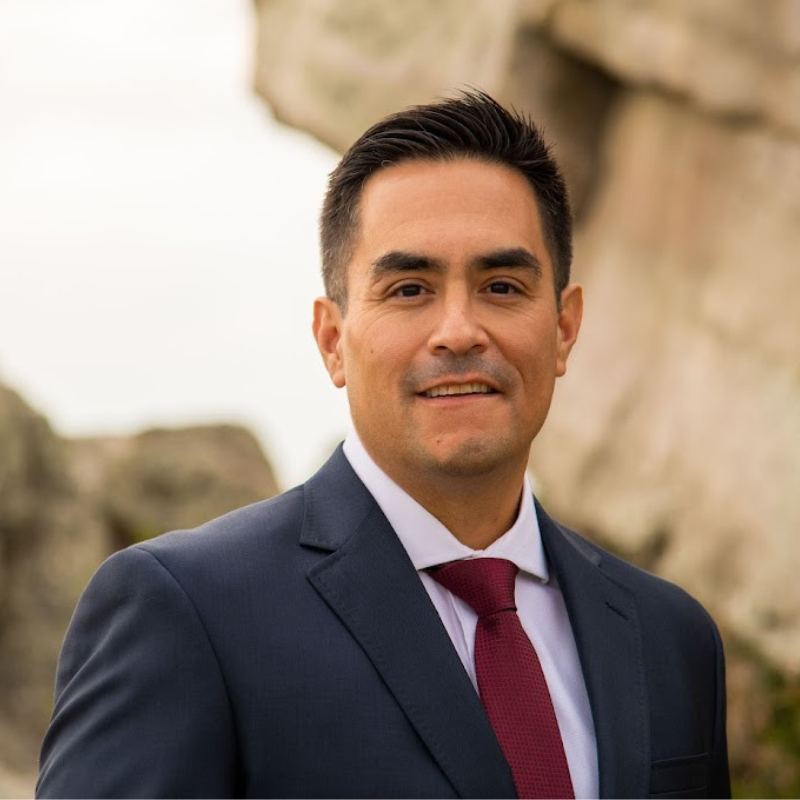
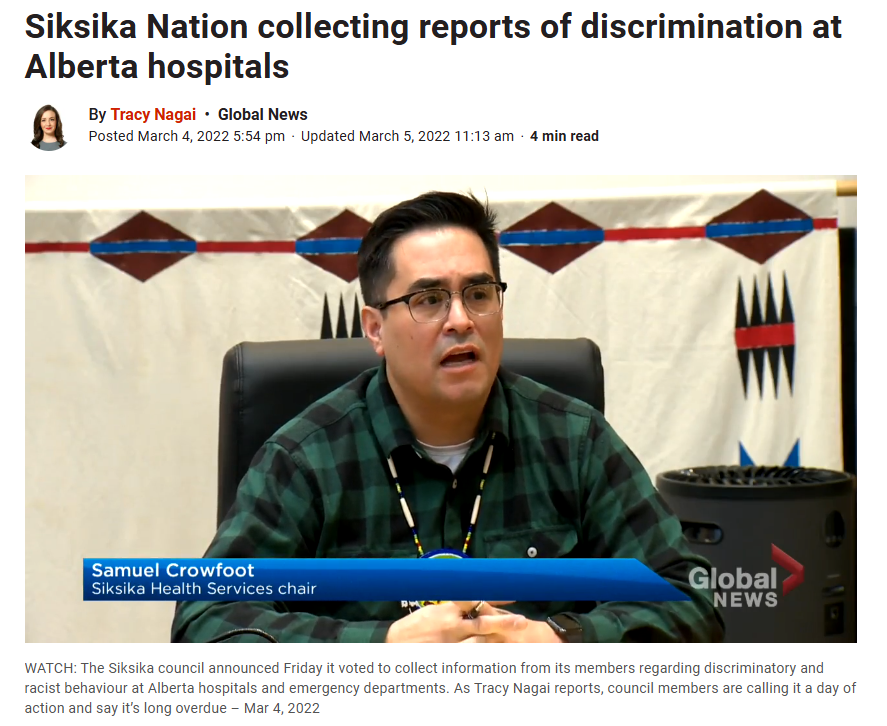
Councillor Samuel Crowfoot, who is also a Siksika Health Services chairperson, said he’s already heard from more than a dozen Siksika Nation members about discriminatory treatment they’ve received at area hospitals.
“Just down the road from here are two towns — Strathmore hospital and the Vulcan hospital — and many of our nation members choose not to go to the more local facility because of how they’re treated,” he said.
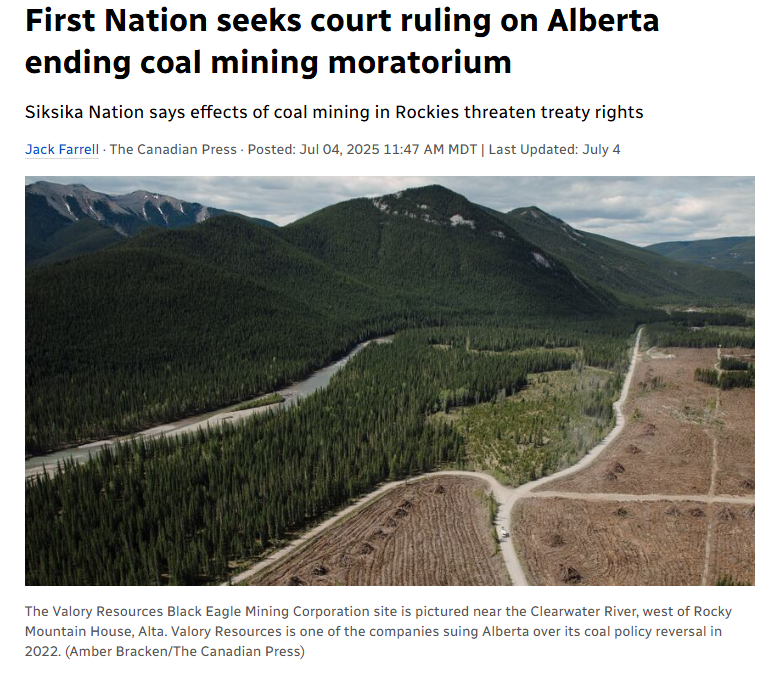
Samuel Crowfoot, a Siksika Nation councillor, told CBC News that “the principal objective of this filing is to protect the land that has always been under the stewardship of the Siksika Nation and the rest of the Blackfoot Confederacy.”
“These lands aren’t just opportunities for economic development. Yes, that’s part of it, but there’s so much more than that. These lands are connected to our culture, to our identity.”

Samuel Crowfoot … said it’s a big issue for them because there’s no AFN regional chief representing Alberta.
“So, a lot of our voices aren’t necessarily being heard or advocated for. And what happens out east doesn’t necessarily apply to us out west the way they think it would,” Crowfoot said.
“As we all know, all nations in Canada aren’t on the same footing. Some have self-government agreements, some have treaties, some have neither. And so this one-size-fits-all approach doesn’t fit everything because we weren’t ever necessarily treated on the same type of a playing field.”
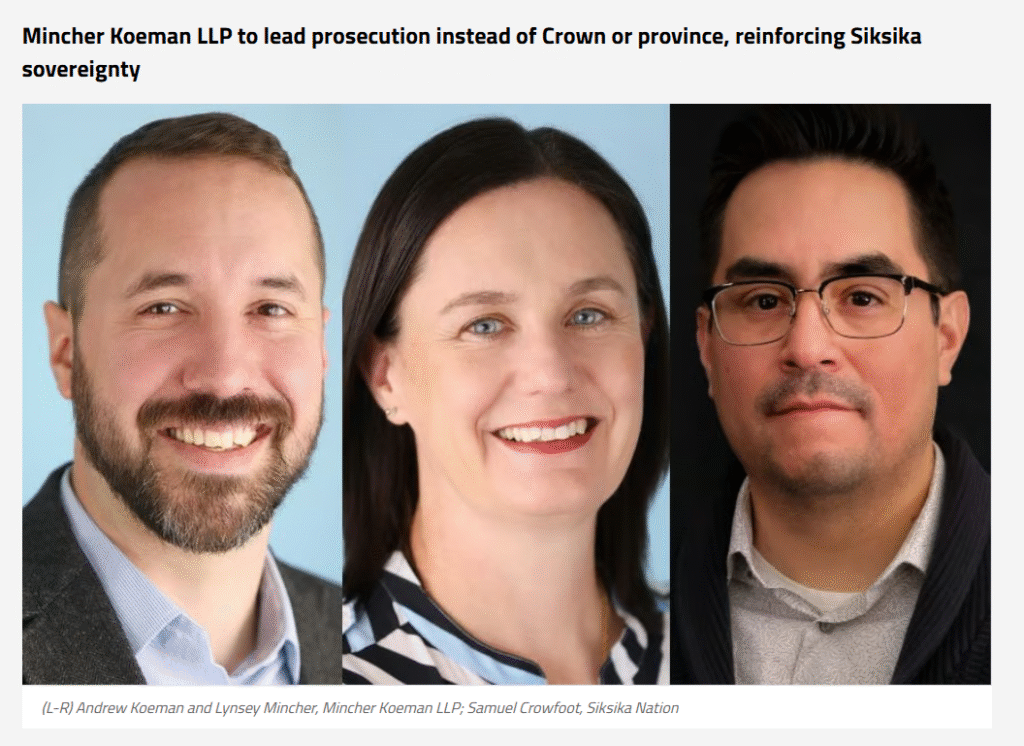
The Crown has typically prosecuted criminal cases on first nations’ lands, but there has been a gap regarding by-law enforcement, says Siksika Nation Councilor Samuel Crowfoot.
“In listening to members of our community, we noticed some gaps in services,” he says, specifically on enforcement of infractions that by-laws would typically cover.
Crowfoot is a native of the Siksika Nation but has worked in the United States as a prosecutor for a tribe in Arizona and as a tribal judge in New Mexico. Programs under which first nations can prosecute their laws are more common in the U.S., Crowfoot says. “When I came back, I thought, ‘Why isn’t this something we could do here?’ And we discovered that it was possible. This is important because it exercises our sovereignty and bolsters our inherent rights.”
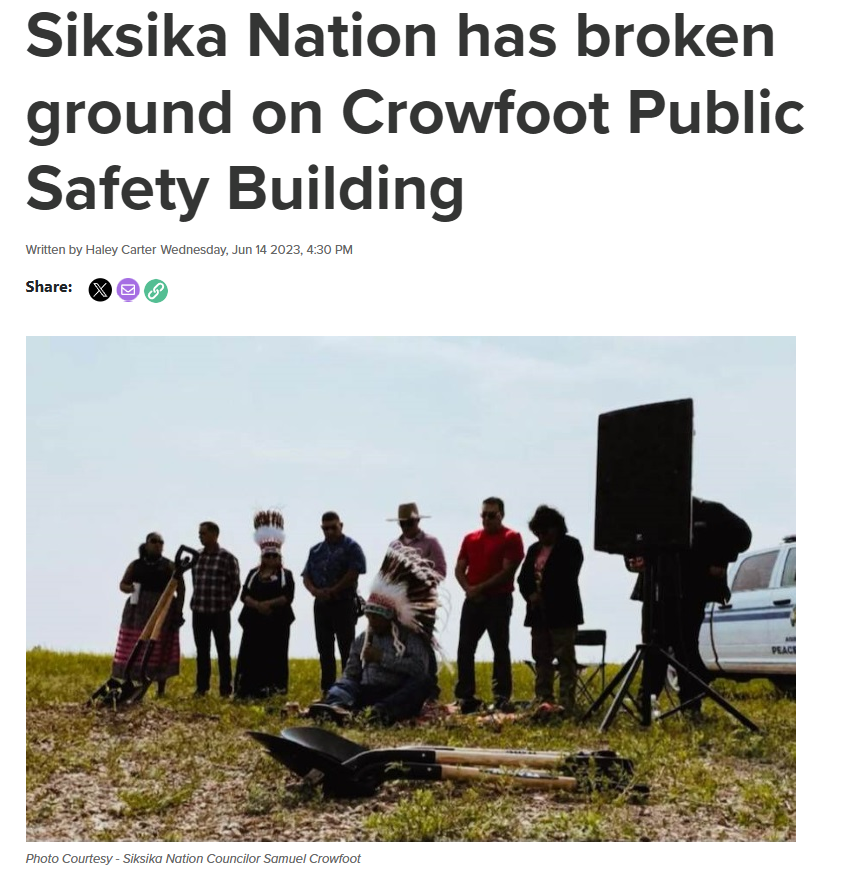
Siksika Nation Councilor Samuel Crowfoot explains that there is a need for a public safety building as some of the nation’s members are more spread out than others.
“We want to make sure that the only people within the Gleichen area aren’t the only ones who have law enforcement close by. So, this satellite police station is meant to bring a 24-hour presence to that part of public safety to that part of the reserve.”
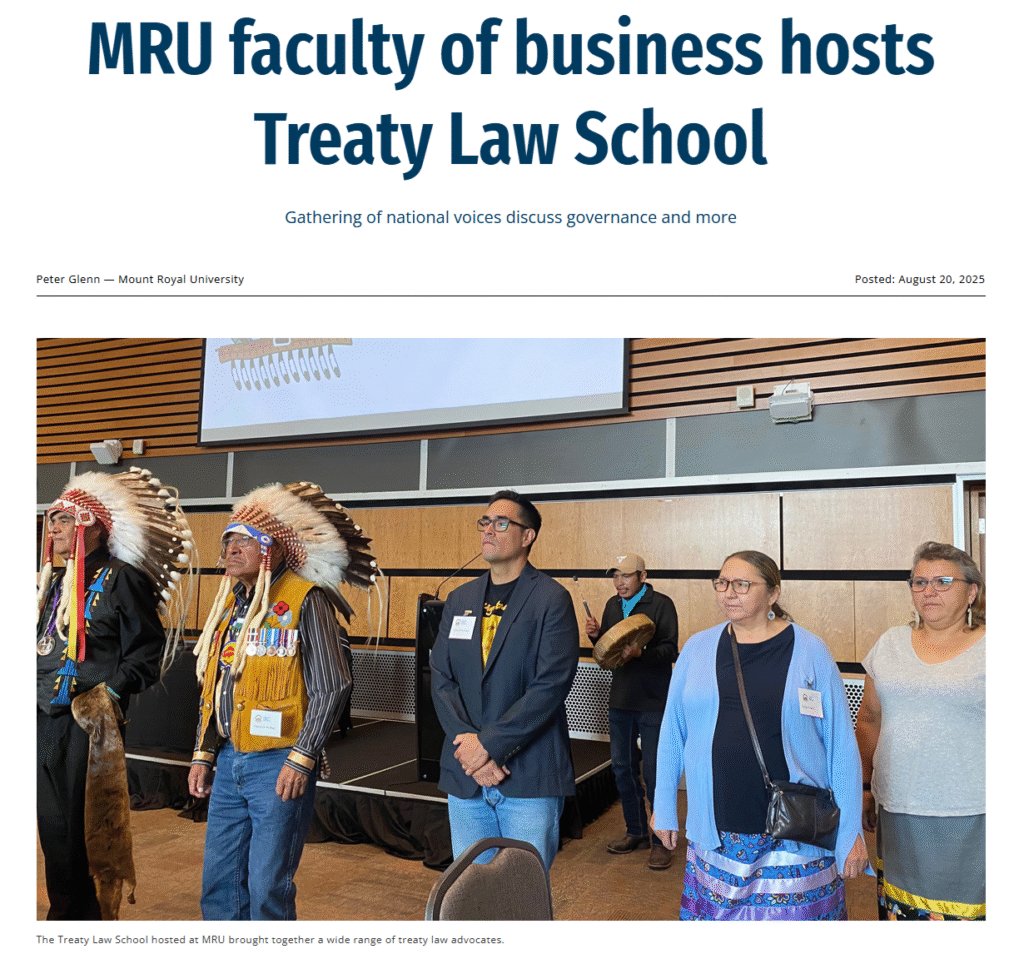
Samuel Crowfoot, a Siksika councillor and Mount Royal alumnus who has pursued a career in the U.S. prosecuting major crimes and who chairs Siksika’s legal task force, delivered a powerful opening address where he emphasized that treaty obligations involve more than what was written down on paper and urged more young Indigenous people to pursue a legal education.
“We need more Indigenous lawyers. Courtrooms are the modern-day battlefield and as important as it is to speak our language we need to speak the legalese.”
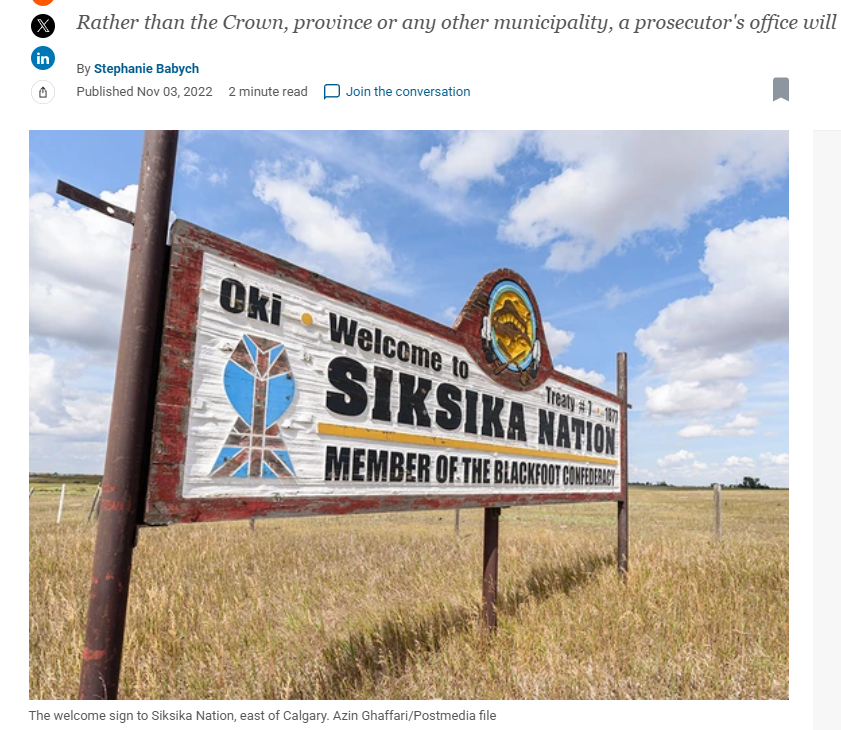
“They’ll be representing our government in court, prosecuting our bylaws,” said Siksika Nation Coun. Samuel Crowfoot. “This is significant because it’s an exercise of our sovereignty.”
Crowfoot said he’s from Siksika but moved to the United States to work as a prosecutor for a tribe in Arizona and later as judge for a tribe in New Mexico before returning to the southern Alberta First Nation. Arrangements where First Nations can prosecute their own laws are more common in the United States.
“I was remembering the situation I just came from as a lawyer, and then looking at the current landscape here now and I thought, why don’t we hire our own prosecutor?” said Crowfoot. “It just seemed like the right thing to do. There are some challenges ahead though. This is the first of its kind — to my knowledge — in Canada.”
He said he hopes Siksika can set an example for other First Nations in Canada.
“This is a huge step forward. The prosecutor will be prosecuting Nation bylaws, laws passed by Siksika Nation Chief and council and those laws passed by us will reflect our traditions and customs,” said Crowfoot.
“Anybody who chooses to enter our land, will be subject to those laws.”
The First Nation doesn’t have many bylaws in place at the moment, Crowfoot explained. But they had been wondering why they had any if they weren’t able to properly enforce them through prosecution.
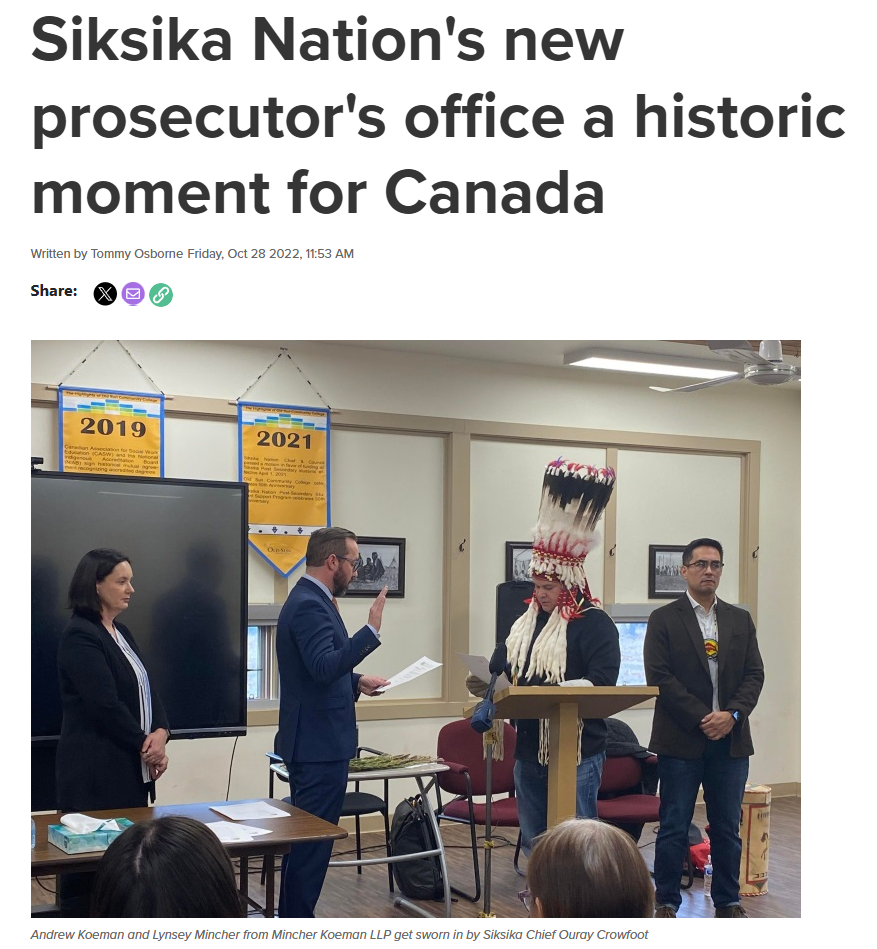
Siksika Nation, in partnership with Calgary area law firm Mincher Koeman LLP, announced the creation of Canada’s first ever First Nation bylaw prosecutor’s office. Siksika Nation Councillor Samuel Crowfoot says it is a huge step for Siksika Nation in exercising its sovereignty.
“It’s an integral part of how we function as a society, so the fact that we have a prosecutor prosecuting Siksika Nation bylaws beholden to the values and traditions of Siksika nation, and not necessarily the colonial crown system is huge. Anytime a First Nation can take services and employ them and distribute them in an effective manner is decolonization action. That’s why it’s so important here today because we are a First Nation government and we are on par with Canada, United States, the province, and any other municipality or government out there. It only makes sense that we would enforce our own bylaws, that we provide our own prosecutors and eventually have our own tribal judges, our own tribal court, and our own tribal justice system because that’s what governments do. They protect and enforce the people and the laws and the borders and the environment. And that’s just a natural course of what we’re doing here,” Crowfoot said.
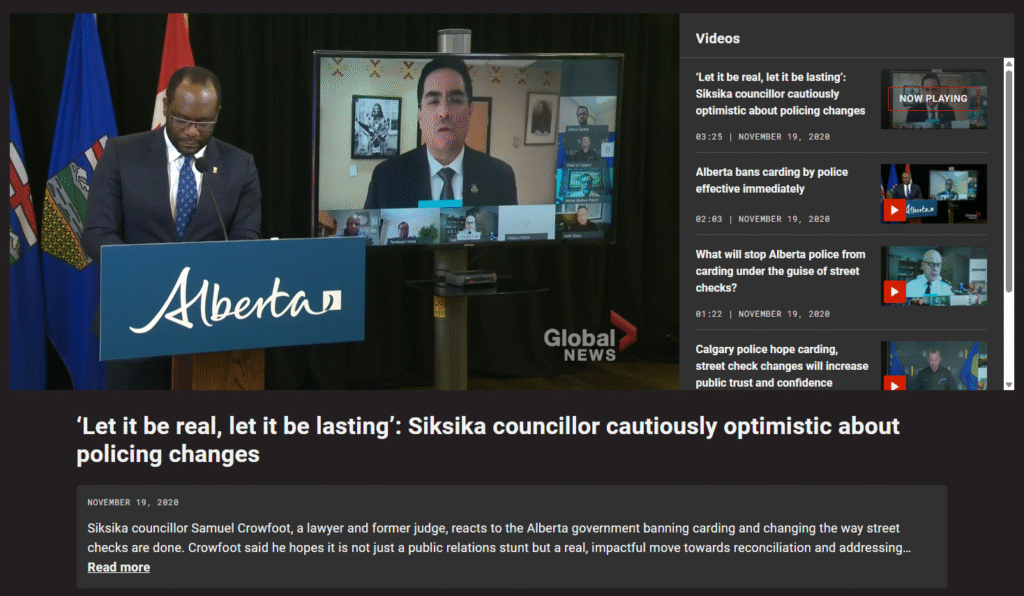
Siksika councillor Samuel Crowfoot, a lawyer and former judge, reacts to the Alberta government banning carding and changing the way street checks are done. Crowfoot said he hopes it is not just a public relations stunt but a real, impactful move towards reconciliation and addressing racism.
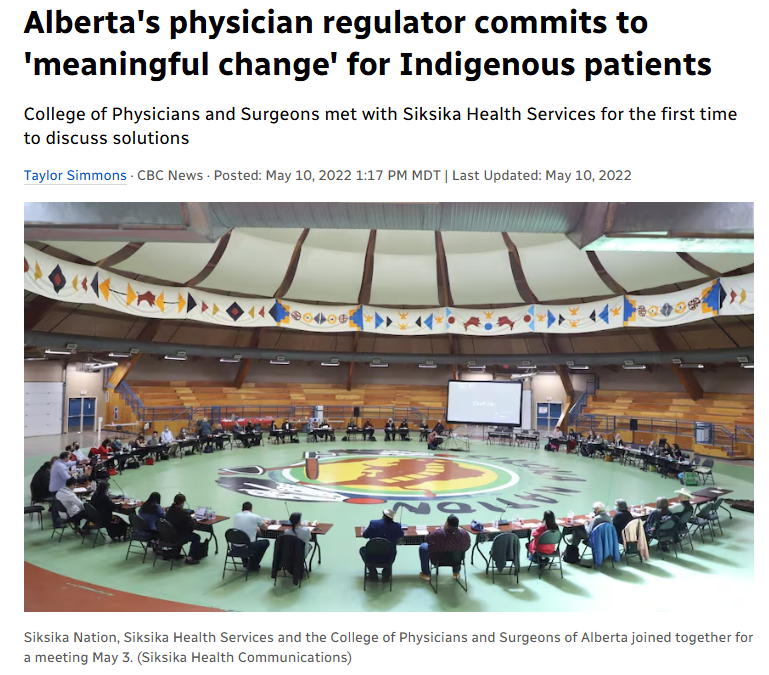
When people from Siksika Nation try to seek healthcare, they can face racist remarks, their pain can be disregarded or they’re unfairly targeted by security, according to Sam Crowfoot, board chair of Siksika Health Services.
In many cases, people will choose not to seek help when it’s needed.
Some will even avoid certain hospitals.
“When you have medical emergencies, those minutes and those extra travel times really add up,” he said in an interview with CBC Calgary News at 6.
“It can really lead to poor health outcomes, and so people are really kind of scared and being very critical and very choosy when they choose to go to the hospital.”
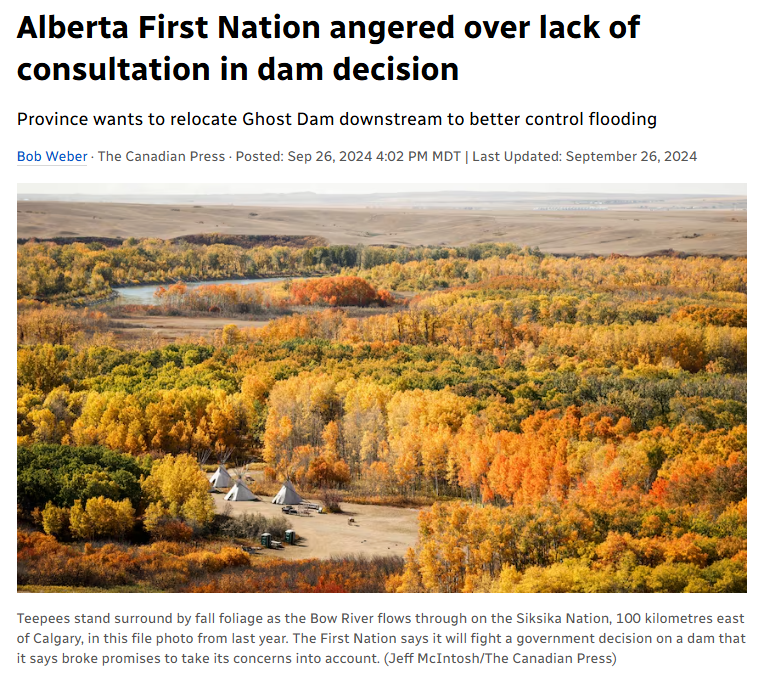
But the Siksika, the only First Nation downstream from the proposed dam, says that announcement was made without once hearing from the First Nation. It says the government broke its own promises and ignored technical advice by not talking to Siksika.
“We need to offer our input,” said councillor Sam Crowfoot. “For them to put (forward) a project of this magnitude without any concern for Siksika Nation is serious to us.
“Litigation is one thing we’re seriously considering.”
The province then promised talks with Siksika over water. The group was to meet quarterly but three years later has yet to convene, despite letters sent to environment ministers as early as July 2021 pleading for meetings.
“We’ve been ignored and brushed aside at every turn,” Crowfoot said.
Siksika is distant from the proposed dam but has a major stake in the Bow River. Its homes depend on wells recharged by the river’s flow and 70 per cent of its water use is for Indigenous-owned farms and ranches.
As well, flooding in 2013 evacuated about a quarter of Siksika residents and destroyed the homes of 771 members. Nearly two-thirds of those on the reserve lost their water supply and large parts of the reserve remain unusable from flood risk.
“Whatever happens on the Bow River affects Siksika, full stop,” Crowfoot said.
He said the nation isn’t opposed to water management on the Bow. It just wants to be at the table.
Crowfoot said Siksika is prepared to do anything it needs to do to get Alberta to listen.
“We will do whatever we can.”
The province then promised talks with Siksika over water. The group was to meet quarterly but three years later has yet to convene, despite letters sent to environment ministers as early as July 2021 pleading for meetings.
“We’ve been ignored and brushed aside at every turn,” Crowfoot said.
Siksika is distant from the proposed dam but has a major stake in the Bow River. Its homes depend on wells recharged by the river’s flow and 70 per cent of its water use is for Indigenous-owned farms and ranches.
As well, flooding in 2013 evacuated about a quarter of Siksika residents and destroyed the homes of 771 members. Nearly two-thirds of those on the reserve lost their water supply and large parts of the reserve remain unusable from flood risk.
“Whatever happens on the Bow River affects Siksika, full stop,” Crowfoot said.
He said the nation isn’t opposed to water management on the Bow. It just wants to be at the table.
Crowfoot said Siksika is prepared to do anything it needs to do to get Alberta to listen.
“We will do whatever we can.”
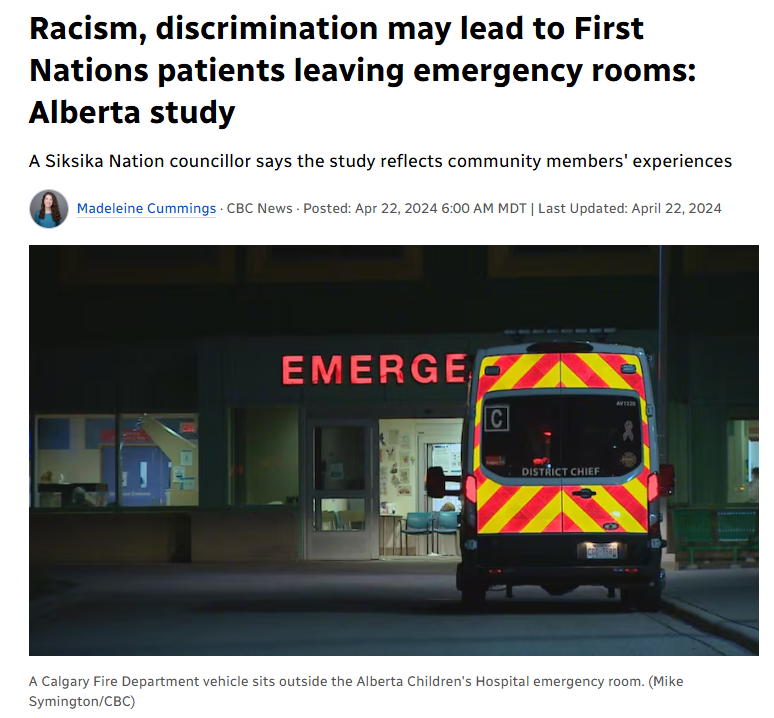
Siksika Nation Coun. Samuel Crowfoot said the study reflects what members of his community southeast of Calgary have long been experiencing: misdiagnoses, being targeted by hospital security, and physicians assuming intoxication.The First Nation has encouraged members to share stories related to racism and discrimination in health care and signed an agreement with Alberta physicians to address both problems.